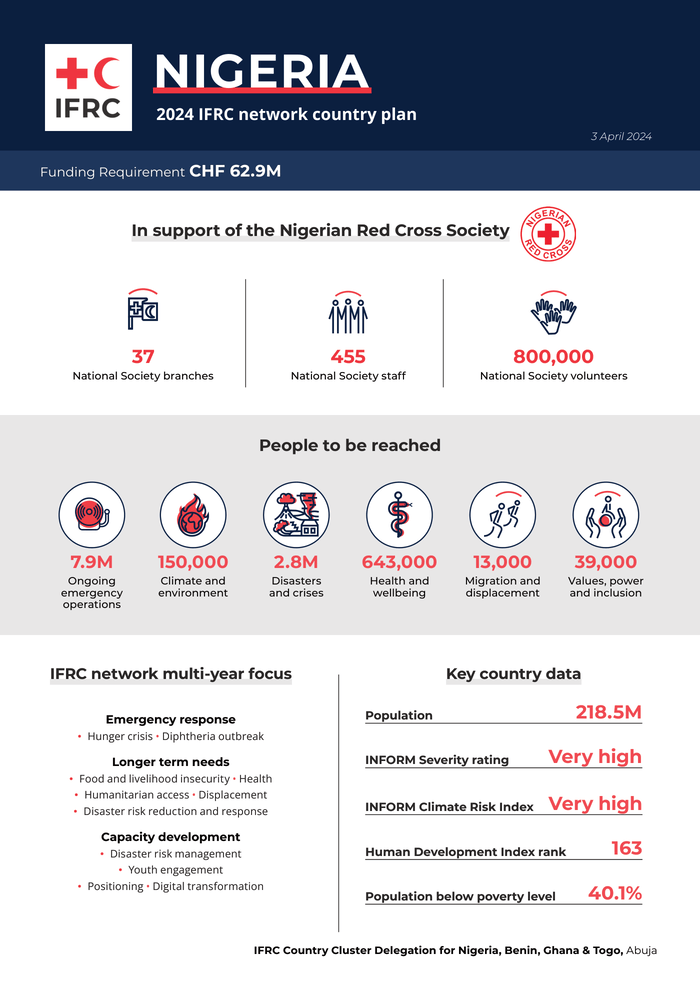
NATIONAL SOCIETY PROFILE
The Nigerian Red Cross Society was founded in 1960 and was admitted to the International Federation of Red Cross and Red Crescent (IFRC) in 1961. It is the largest national humanitarian organization in Nigeria. The National Society has an extensive network of volunteers who work with people in need of humanitarian assistance, along with relevant public authorities, across all 36 states and the Federal Capital Territory. It is a first responder during disasters and social emergencies, and supports long-term development through its work in climate resilience, disaster risk reduction, public health, community, and youth development.
The Nigerian Red Cross Society is mandated to act as a leading organization in national preparedness and in the humanitarian response to circumstances including armed conflict and violent situations, natural hazards, man-made disasters, and other emergencies in the country. It is also mandated to manage an effective national network that restores family links between people separated because of natural hazards or man-made disasters, or by other situations that have led to displacement and a need for humanitarian response.
The National Society’s areas of work include livelihoods, shelter, climate change, migration, restoring family links, cash transfer programming, disaster risk reduction and community first aid. These activities accompany the National Society’s long-term health work, resulting in a holistic approach that provides an effective humanitarian response in all situations. It aims to strengthen its preparedness capacity at headquarters and branch level to ensure timely planning, effective coordination, and response to emergencies. In 2022, the Nigerian Red Cross Society reached almost 2.3 million people with disaster response and early recovery.
The Nigerian Red Cross Society Strategic Plan 2021–2025 identifies three strategic aims to address the needs of people in Nigeria:
Disaster management: save lives, protect livelihoods and prepare for recovery from natural hazards and man-made disasters
Health and care: promote an enabling healthy and safer living environment and engender early warning responses
Communication and humanitarian values: build and maintain a communication strategy that is accessible to all as well as promote peace and tolerance
Six other strategic aims relate to the National Society development, and focus on strengthening institutional structures, systems and capacity, resource mobilization and management, volunteer, gender and youth development, financial sustainability, digital transformation, and programme monitoring, evaluation, accountability and learning.

